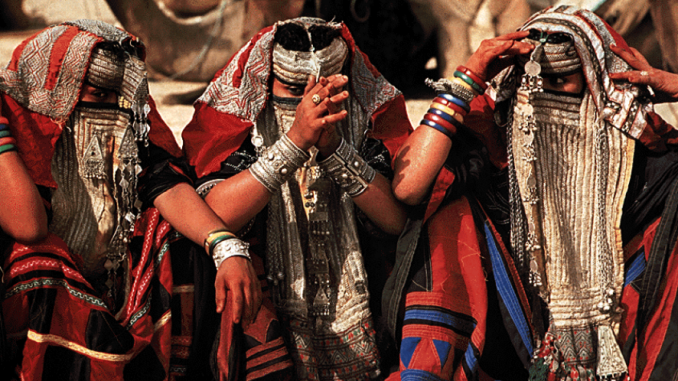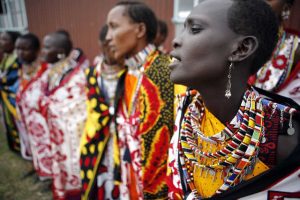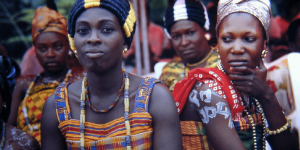
Inheritance of property is a big deal on the continent of Africa. Each region and tribe has its own unique set of guidelines related to the distribution of goods, property and money left behind by a deceased person.
If the deceased is a male and married, things can get complicated. Most tribal lines are patriarchal and property left behind tends to go to other male relatives. Unfortunately, many times the wife and children are neglected and mal-treated as they can easily be displaced and forced into financial hardships which can in turn cause poverty.
In extreme cases, the widow is forced to remarry quickly to a male relative of her husband – a sibling or cousin. This is called wife inheritance or levirate.

South Sudan
The Nyangwara people are an ethnic group that resides in South Sudan in Central Equatoria.
The Nyangwara are divided into the Nyangwara of Rokon, Dollo or Miri, and Tijor who later adopted the name of “Pojulu of Tijor.”
The Nyangwara follow a non-centralized Patrilineal society. The society is divided into clans called Kotumitan.
In the practice of Ruta, women are inherited by their widow’s siblings or other male relatives after his death.
Nevertheless, women can opt to not remarry or remarry a man outside of their clan. She can also remain a member of her widower’s clan so she can raise their children.

Kenya
Tero Cholla or Luo is the practice of wife inheritance in Kenya among the Luo tribe in the Nyanza region.
Women are required to remarry the brother of the husband to ensure that the husband’s property is properly dispersed to her and any subsequent children, as explained by Standard Media.
In 1999, tero was banned by Provincial Commissioner Peter Raburu.
However, this does not mean that the practice has been done away with.

Ghana
In Ghana, like most African countries there are a plethora of tribes and practices honored by the members of those tribes.
The Akan tribe is matrilineal nevertheless oftentimes women and children are not afforded a hefty economic foot to stand on when the husband dies. Instead, the property is taken by the family of the deceased – even if the woman largely contributed to the wealth of the family unit.
In the Akan tribe which is largely comprised of the Ashantis and Fantes along with 14 other sub-groups, in the olden days, women were asked 40 days after the burial of their spouse if they would agree to marry the next of kin of the deceased, as documented by Widowhood Practices among the Akan of Ghana – Yesterday and Today by Helena R. Asamoah – Hassan
It was considered a taboo to marry the brother or uncle of the deceased. However, the heir of the deceased could cohabitate with the widow to ensure he received the goods promised to him via inheritance. If the widow refused to marry the heir, she was obligated to wait a year to remarry and all outstanding debts will have to be satisfied.
In modern times, some of these practices have been abandoned in urban areas and other vicinities away from rural areas. Education and the introduction of religions such as Christianity and Islam are also factors in the eradication of older practices.
Nonetheless, wife inheritance is still practised although it isn’t widely discussed.
